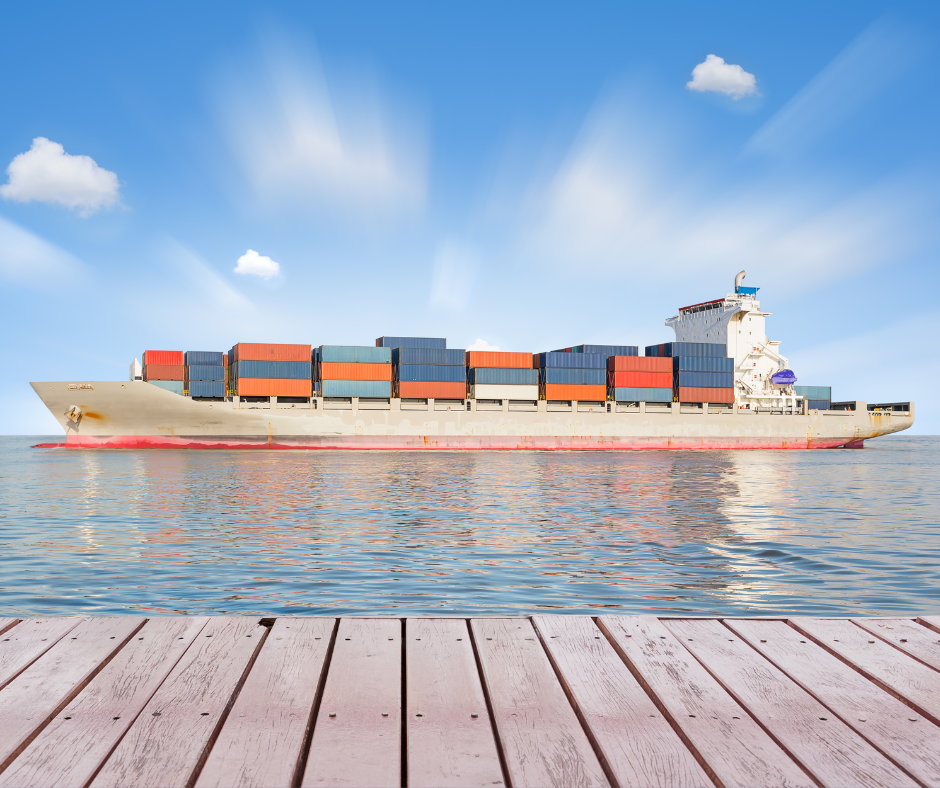 The Internet and related technologies are built on information flows. The consulting firm McKinsey noted there was an 18-fold increase in cross-border Internet traffic between 2005 and 2012.
The Internet and related technologies are built on information flows. The consulting firm McKinsey noted there was an 18-fold increase in cross-border Internet traffic between 2005 and 2012.
Cross-border information flows are also the fastest growing component of trade.
Using International Monetary Fund data from 2008 to 2012, economist Michael Mandel found that such flows increased 49 percent, while trade in goods and services grew some 2.4 percent.
Digitization of goods (such as music and movies) is changing the mix of flows, transforming global logistics and enabling new and smaller players to participate in trade.
Policy makers can do a lot to hamper or encourage cross-border information flows. Individuals and firms currently move data from one location, in one country, with one set of rules, to another location with another set of rules.
If policy makers could form shared rules to encourage the free flow of information, more people would have greater access to information and more information would be created and exchanged, fostering economic growth.
Domestic needs versus the Internet’s global public goods nature
Some nations, such as Brazil and India, believe that governments should do more to exercise direction over the Internet. Often officials in these countries argue that greater government control will help them to provide public goods online, such as education or health care, and to foster innovation and economic growth.
Other governments, such as China and Russia, want a rethink of Internet governance and propose greater international control over the Internet. And still other governments, such as Vietnam, are just beginning to set the ground rules for the Internet within their countries.
Governments might have good reasons for restricting information flows, but doing so could result in unanticipated negative side effects on the Internet, as well as economic growth.
Economists generally agree that information is a global public good that governments should provide and regulate effectively.
When states restrict the free flow of information, they shrink access to information, which can reduce economic growth, productivity and innovation, not just in their own country, but globally.
Moreover, when officials place limitations on which firms can participate in the network, they might reduce the overall size of the network, which could also raise costs.
Why do governments use trade agreements to regulate information flows?
Trade agreements and policies could provide a framework to govern cross-border information flows. The U.S., for example, made digital trade a top priority for the Trans Pacific Partnership a trade agreement signed by 12 Pacific nations) because of the importance of information technologies to the U.S. economy.
Specifically, the U.S. wanted to establish clear rules governing when nations could limit information flows and rules limiting digital protectionism, which can include restrictions on data flows such as censorship or filtering, data localization requirements, and server location requirements among others.
Moreover, policy makers recognize that when we travel the information superhighway, we are often trading.
Second, officials understand that digital trade creates wealth. There is huge potential if nation states can find common ground on not only what nations must do to encourage trade, but also the exceptions to the rules. For example: when nations can breach their obligations and how they must engage in trade policy making when doing so.
The most important and internationally accepted trade agreement, the WTO, already governs digital trade to some extent. The WTO has 161 member states that agree to adhere to its rules and to bring disputes that they cannot settle to its binding system of dispute resolution.
The WTO and other trade agreements have a long history of promoting trust between buyers and sellers who do not know each other. When we go online, just as when we trade, we operate on trust.
Producers and consumers of information often do not know each other. Thus, Internet producers and consumers must trust that others will protect personal or business confidential information.
The WTO contains several agreements covering issues affecting digital trade.
They include:
- The Information Technology Agreement, which eliminates duties for trade in digital products;
- The Agreement on Trade-Related Aspects of Intellectual Property Rights, which protects trade-related intellectual property pertinent to information technology, such as computer programs;
- and The General Agreement on Trade in Services (GATS), which has chapters on financial services, telecommunications and e-commerce
The GATS e-commerce chapter sets rules governing how nations can trade services that are electronically delivered.
These rules also explain exceptions: how and when signatory nations can restrict trade in the interest of protecting public health, public morals, privacy, national security or intellectual property, as long as such restrictions are necessary and proportionate, and do not discriminate among WTO member states.
However, the language in the chapter predates the World Wide Web; the Internet; mobile and cloud computing; and the Internet of Things, among other developments.
Member states designed the GATS language to ensure it would remain relevant as technology changed, but several member states have said that they need clarification on specific points and want to update these rules to avoid misunderstanding.
How will the TPP affect this?
The TPP has clear language making the free flow of information the default for member states.
The Australian Department of Foreign Affairs and Trade asserted that:
“For the first time in a trade agreement, TPP countries will guarantee the free flow of data across borders for service suppliers and investors as part of their business activity. This ‘movement of information’ or ‘data flow’ is relevant to all kinds of businesses …TPP countries have retained the ability to maintain and amend regulations related to data flows, but have undertaken to do so in a way that does not create barriers to trade.”
The TPP recognizes that there are times when nations must limit information flows; these times are protected by rules called “exceptions.”
The USTR notes that “the General Exceptions chapter ensures that the United States and the other TPP Parties” are guaranteed “the full right to regulate in the public interest, including for national security and other policy reasons.”
The TPP incorporates the general exceptions delineated in the GATS. Chapter 29 contains the General Exceptions and General Provisions.
If a government censors or filters, it may cause rerouting of information flows and such actions often distort trade between entities within and among nations.
Hence, one TPP party could use the agreement to challenge censorship or filtering in nations that might do so in a discriminatory manner.
The two nations that have some record of censorship and filtering, Malaysia and Vietnam, were given two years to revise their policies and after that could be subject to such challenges.
The binding language in the e-commerce chapter is disputable under the rules in Chapter 28 of TPP.
The law firm Covington and Burling also notes “a government measure that violates a commitment in the e-commerce chapter might also violate an investment commitment in Chapter 9, and to that extent could be subject to investor-state dispute settlement.”
The TPP will have an impact on Internet governance simply because it covers so many Internet providers and users and because its commitments will affect how governments can behave when regulating cross-border information flows.
TPP parties have a population of some 800 million people, or 11.4% of the Earth’s total. Many of these individuals are already active on the Internet.
Moreover, the TPP includes important and growing markets for digital products and services such as Vietnam. Colombia, Indonesia, the Philippines, South Korea, Taiwan, and Thailand have expressed interest in joining TPP should it come into effect.
Moreover, if TPP is approved, it could have significant spillover effects upon how other governments deal with cross-border information flows. They will have to comply with TPP rules when they exchange information with TPP parties.
At minimum, the US will want to use TPP as a guidepost for other trade agreements including TTIP and TISA under negotiation.
Meanwhile, other governments too will need to consider this language and what it means for their firms’ cross-border flows.
However, the US may be overselling the benefits of the agreement to the Internet just as critics are exaggerating the agreement’s costs to the Internet and Internet governance.
What needs to be updated with global trade laws for the Internet?
In 2011, the United States wrote that the WTO must update its work program (and ultimately the system of rules) on electronic commerce “if the WTO is to remain relevant to the innovative technologies and business models that can support economic growth and opportunity.”
The United States also expressed concerns that governments still lack guidance as to whether electronic commerce should be governed by WTO commitments under trade in goods or services and if these rules could cover the mobile Internet and cloud computing.
The WTO Deputy Director-General Harsha V. Singh, in 2013, admitted that “the issues we need to address at the WTO are fairly distinct and legalistic, including, for example: classification dilemmas, the implications of technological neutrality for the trade rules, when does a ‘challenge’ or ‘obstacle’ to e-commerce also fit within our definitions of a restriction on trade?”
Academics and business leaders have also argued that the WTO’s rules are incomplete, out of date and in need of clarification.
Meanwhile, although the GATS states nothing explicitly about information flows, WTO members have begun to apply these obligations when settling disputes about cross-border information flows.
The WTO’s Dispute Settlement Body has adjudicated two trade disputes related to information flows.
After Antigua challenged the United States’ ban on Internet gambling, the WTO ruled that governments could restrict service exports to protect public morals if these barriers were necessary, proportionate and non-discriminatory (not discriminating between foreign and domestic providers).
The WTO’s Appellate Body also examined China’s restrictions on publications and audiovisual products, noting that commitments for distribution of audiovisual products must extend to the distribution of such products by the Internet.
However, neither dispute has provided clarity regarding key issues such as whether governments can, for example, restrict sales of offensive items such as Nazi memorabilia, or if they can censor and filter websites.
Until members challenge these policies in a trade dispute or negotiate new rules, we will not have clarity on why, how and when governments can restrict cross-border flows.







disqus comments